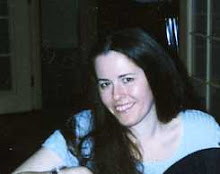Plot Summary - "Den of Iniquity". Early silent melodrama about two sisters who each get mixed up with a gang of infamous white slave traffickers. Mary's the head of the family while her wheelchair-bound father, "the invalid inventor", is busy tinkering with stuff. Reliable Mary (Jane Gail) works at a local candy store along with her little sister (Ethel Grandin), a young beauty. Successful businessman William Trubus has been recently appointed to head a citizen's league to help clear the city of the infamous "traffic in souls", and meanwhile he's busy listening in on a dictagraph to an adjoining office during a meeting of these infamous outlaws, a rather large group that includes look-outs, go-betweens, even women. Hmmm, well it seems Trubus is actually in league with them, "the money handler" - wonder how this will affect his daughter's approaching engagement to the "greatest society catch of the season"?! So this group of bad guys are busy doing their stuff - you know, luring poor, naive young women into their hideout and forcing them into prostitution including Swedish emigrants right off the boat, a newly arrived and lost "country girl", they even drug and kidnap Mary's little sister. Mary and her fiance, a good-looking cop, come up with a plan to save little sis and get the evidence to convict these people - and the father's latest invention comes in handy to help them get the goods. Luckily Mary is a recent hire in Trubus' office, so that makes things a bit easier!
Review - I enjoyed this film as I always do for films made in the early teens - I just love that time period (all sorts of ladies hats and men's straw hats to look at in this one). This film has a lot of glimpses of the real-life world of 1913 as it has many on-location scenes shot in NYC streets and trolley cars, with lots of nearby bystanders gawking at the camera. Like many films from this time, it is full of lots and lots and lots of highly melodramatic scenes. I thought this film was actually quite well done considering it's early year; nice tracking shot near the end panning across each criminal's face behind bars. The DVD from Flicker Alley features a nice quality black and white print and well done piano score by Philip Carli. It includes the Edison short "The Call of the City (1915)" in which a young woman struggling to find work and a young novelist who is writing a story on slum life meet over a crime and make some snap decisions in regards to marrying a person you actually *barely* know. Cute. Rating - 8/10 stars for film; 8/10 for short
Subscribe to:
Post Comments (Atom)


No comments:
Post a Comment